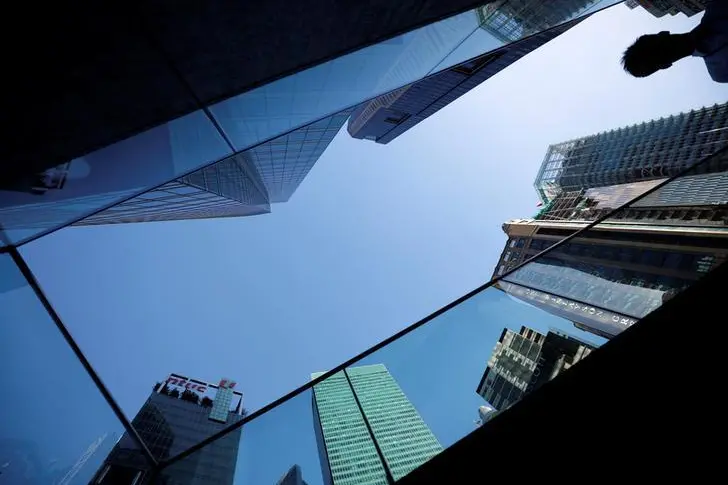PHOTO
Dealmakers, fund managers and CEOs are flocking to Singapore for a slew of high-profile conferences this month, as the city-state burnishes its credentials as a major global financial centre.
While COVID curbs continue to hinder large in-person gatherings in rival financial hub Hong Kong, Singapore has mostly returned to pre-pandemic life with indoor mask rules loosened last month.
Business is booming - hotel room rates are at a decade-high, conference venues have been booked for weeks and restaurants are packed.
"We have had a funny two years being locked down and isolated from our peers, so the in-person conferences feel like a small step back to normality and a big step back into humanity," Rachel Lau, managing partner at Southeast Asian-based investment firm RHL Ventures.
The first of these events starting Monday is SuperReturn Asia, an annual private equity and venture capital industry conference being held in Singapore for the first time instead of Hong Kong as usual.
Some 1,000 executives from over 40 countries are expected to participate over four days - a record number for the event and which compares with about 800 in 2019. Delegates are paying as much as 4,000 pounds ($4,600) to attend.
"We've been planning the event for many months now," said Dorothy Kelso, global head of SuperReturn, adding that demand for the chance to meet physically in Asia was high amongst the international community.
Other conferences in Singapore this month include the Milken Institute Asia Summit run by U.S. billionaire Michael Milken's think tank, the Forbes Global CEO conference and Token2049, a crypto event that will also take place in the city for the first time.
The conferences, which offer networking opportunities with investors from India and China as well as sovereign wealth funds, will be attended by executives from investment giants such as Carlyle Group, PIMCO and Franklin Templeton.
Indian and Southeast Asian startups and representatives from cryptocurrency exchanges OKX and FTX will also be attending.
The revival in Singapore conference activity puts it on a similar footing to New York where big business gatherings have resumed. London has also largely returned to pre-pandemic levels of in-person gatherings in recent months, although smaller-scale events are more common than bigger multi-day conferences.
SINGAPORE VS HONG KONG
Singapore is also set to see a surge in tourism with the F1 night race resuming at end-September after a two-year hiatus. Other major tourist draws being organised include concerts by Maroon 5 and Guns N' Roses in November.
"Singapore has come roaring back," said Curtis Chin, a former U.S. ambassador to the Asian Development Bank and an Asia Fellow at the Milken Institute.
Singapore has long been locked in fierce competition with Hong Kong to be considered Asia's premier financial centre with both cities keen to lure global banks as well as wealth and asset managers.
But Hong Kong's unrelenting COVID curbs have battered its economy and standing as a financial centre. It is one of the few places in the world still requiring arriving travellers to quarantine.
Its restrictions have only added to an exodus of finance and business talent in recent years as Beijing began to exert more control over Hong Kong's government and limit freedoms - all of which has worked in Singapore's favour.
"With Hong Kong increasingly linked to mainland China both economically and policy-wise, Singapore is able to further differentiate itself as a controller of its own destiny and as a hub for major international events," said Chin.
Wealthy families, especially from China, and super-rich individuals have set up hundreds of so-called 'family offices', tapping into Singapore's generous tax incentives and stable political system.
Singapore authorities have also just unveiled new work visa rules to attract executives earning at least S$30,000 ($21,300) a month, hoping to draw in global "rainmakers". ($1 = 1.4083 Singapore dollars) (Reporting by Anshuman Daga and Yantoultra Ngui; Additional reporting by Lawrence White in London and Lananh Nguyen and Carolina Mandl da Silva in New York; Editing by Sumeet Chatterjee and Edwina Gibbs)





















